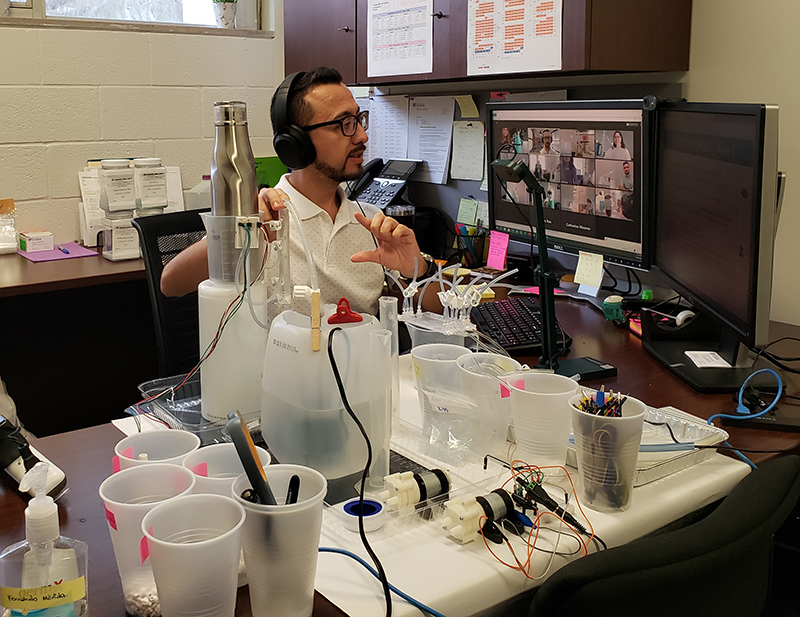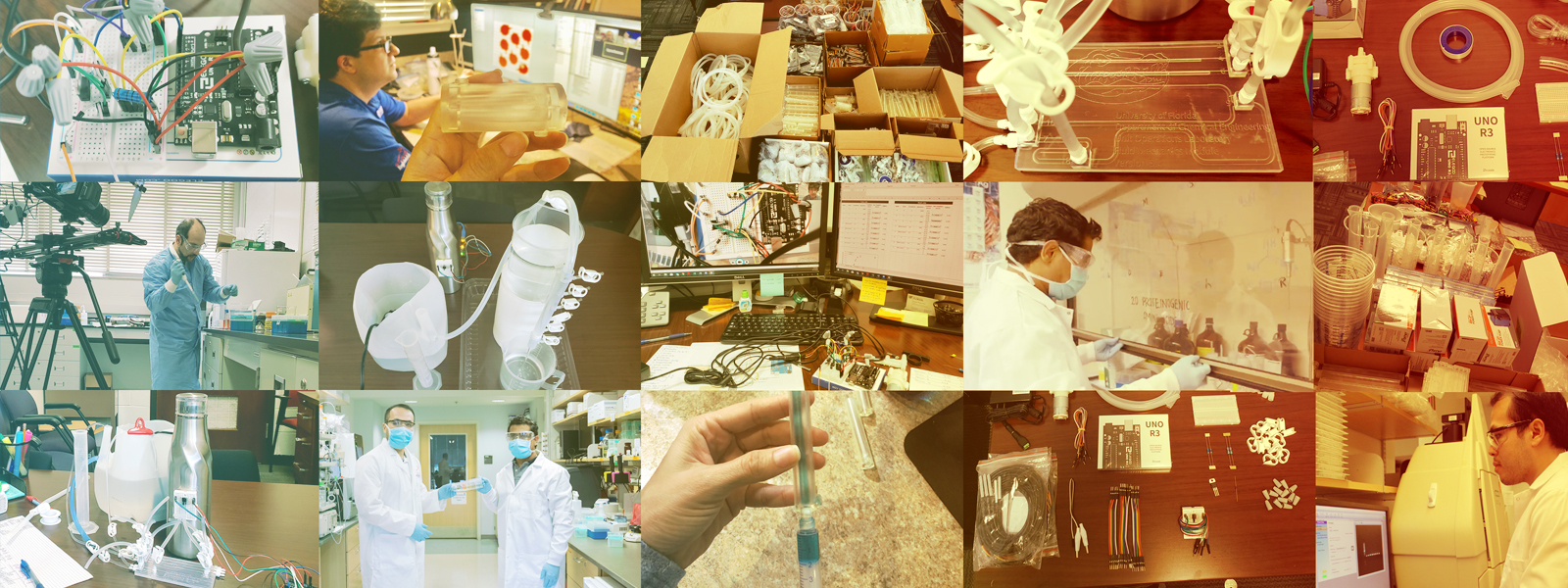As the world was closing down because of the global pandemic, the faculty at the UF Department of Chemical Engineering was coming up with new ways to continue delivering the same high-quality education while remaining physically distant.
As the saying goes, necessity is the mother of invention.
The challenge: juniors and seniors in chemical engineering take the Unit Operations Lab in person, on very large and complex equipment, similar to that used in industry. However, due to the limited space, it would be impossible to remain physically distant and have every student access the lab.
Enter the UF Unit Ops Lab Kit. The low-cost, 3D printed kits were provided to each student to perform their own guided lab experiments at home using heated and cooled water and food safe dyes. The kits include miniaturized versions of the equipment that they would utilize in the lab. Students would now be able to run their own guided experiments, analyze their own findings, and remain physically distant.

“The Spring semester was overwhelming for students due to the sudden and unexpected migration to an online platform. They expressed how challenging it was for them to analyze raw data from experiments conducted in previous semester by others,” said Fernando Merida, Ph.D., lecturer and contributor to the kits. “After hearing about the kits, students have emailed me asking for more details on the class, more pictures, or expressing enthusiasm about working with these kits.”
The UF Unit Ops Lab Kit is the first of its kind and created a buzz in the chemical engineering community when Carlos M. Rinaldi-Ramos, Ph.D., department chair, and contributor to the kits shared the progress on Twitter.
“These kits were inspired by the process control kits successfully developed and implemented by our colleague Dr. Spyros Svoronos over the past several years. Spyros is an inspiration to us all and it was a real pleasure working with him and the rest of the team to turn this idea into reality in a few short months,” said Rinaldi.
Beyond addressing a pressing need during the pandemic, these kits will benefit chemical engineering education at UF.
“I envision these kits as only the beginning. Advances in rapid prototyping, microprocessor technologies, and sensors and actuators have created the real possibility that students could gain hands-on experience throughout the chemical engineering curriculum, without relying on the traditional unit operations laboratory,” said Rinaldi.
Going forward, students will receive these kits earlier in their undergraduate studies so that they can be used as an experiential component in other classes, gaining valuable exposure to these methods earlier in their course of study, without replacing the traditional unit operations laboratory experience. Use of the kits also exposes students to rapid prototyping, coding, microcontrollers and the maker movement. Eventually, the department envisions that students will use the 3D printers in the department to make their own devices and parts as part of courses.
“Conceptualizing, designing, testing, and preparing these kits has involved a significant amount of time and dedication, but it was possible thanks to the efforts and individual contributions of all faculty members on the team, and the support of staff personnel as well. We believe this will be a great experience for our students and we look forward to disseminating our efforts and results of the incorporation of this new platform, so other universities can also implement it in the near future,” said Merida.
Contributors on this project were LiLu Funkenbusch, Ph.D., Fernando Merida, Ph.D., Sindia Rivera-Jimenez, Ph.D., Spyros A. Svoronos, Ph.D., and Carlos M. Rinaldi-Ramos, Ph.D.

